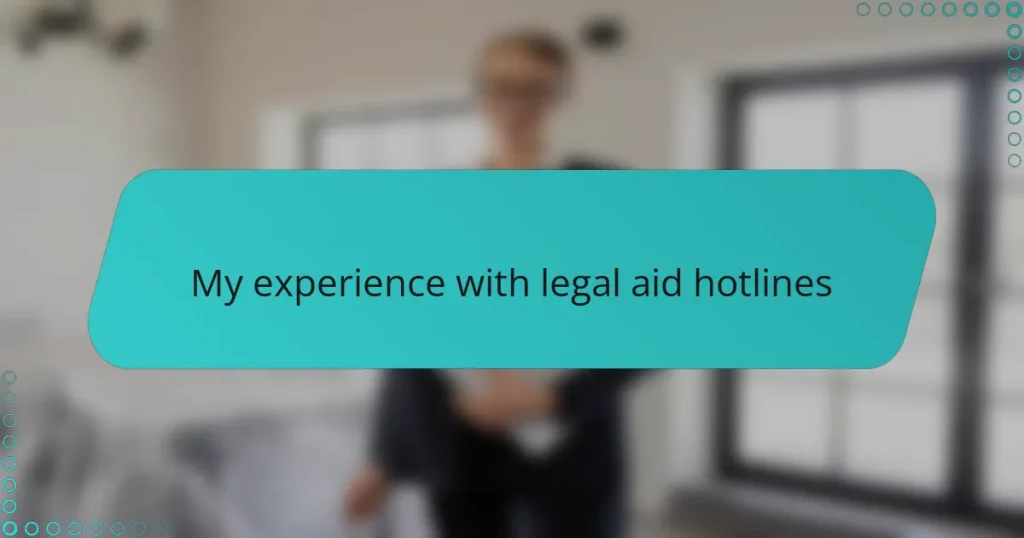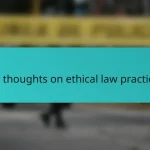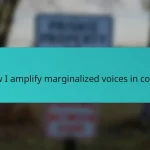Key takeaways
- Legal aid hotlines offer free or low-cost legal advice, helping individuals navigate complex legal issues with the support of trained specialists.
- The service handles a wide range of legal matters including family law, consumer rights, employment, immigration, and more, ensuring everyone receives tailored support.
- Preparation is key: organizing your thoughts and gathering relevant documents beforehand can ease anxiety and streamline the conversation.
- Personal experiences with hotlines highlight the importance of empathetic listening and guidance in transforming overwhelming legal situations into manageable steps forward.
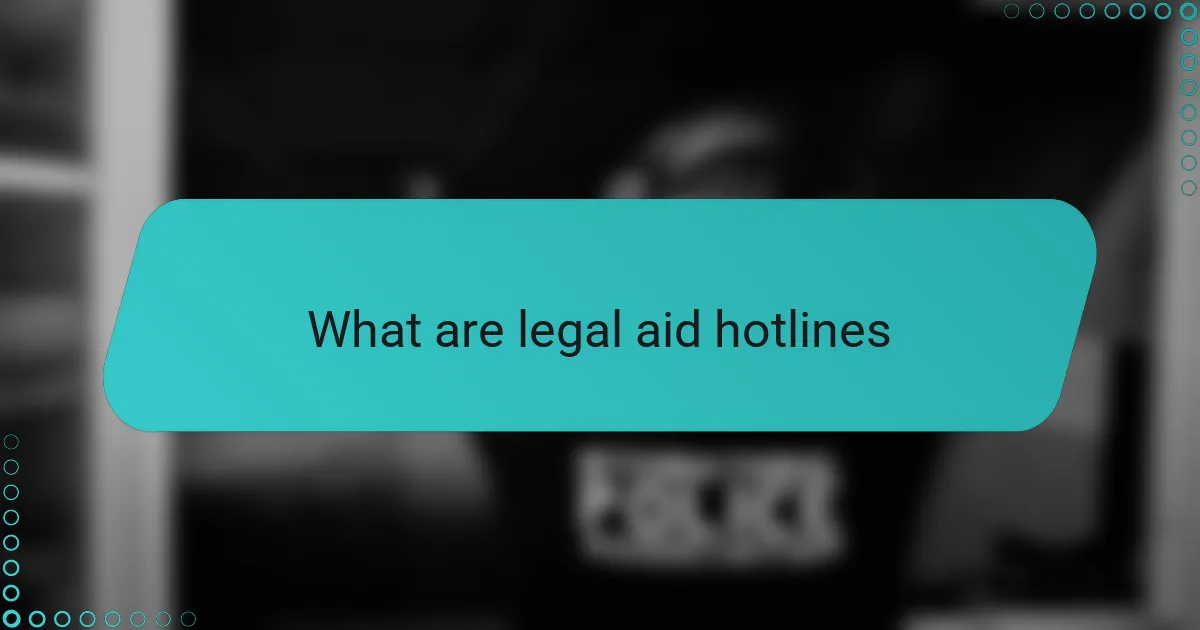
What are legal aid hotlines
Legal aid hotlines are phone services designed to provide free or low-cost legal advice to individuals who might not otherwise afford it. When I first called one, I was nervous and unsure, but hearing a calm voice on the other end made me realize help was truly accessible. Have you ever felt lost in a sea of legal jargon, only to find someone ready to guide you through?
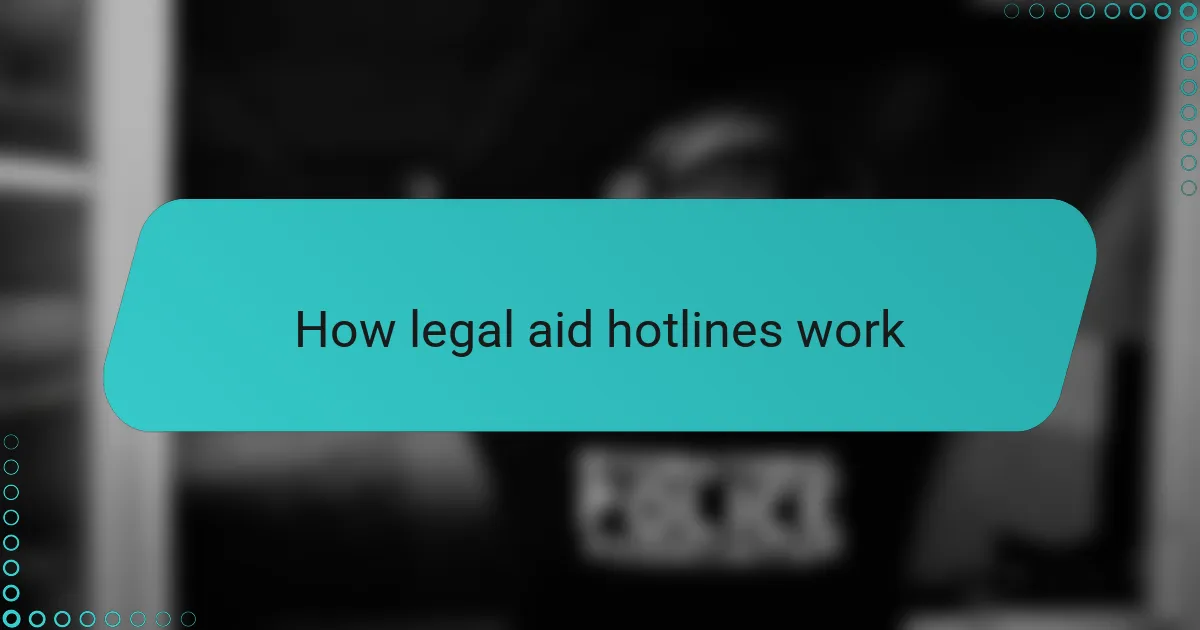
How legal aid hotlines work
When you call a legal aid hotline, your first connection is usually with a trained intake specialist who listens carefully to your situation. I’ve found that simply describing my problem out loud helped me organize my thoughts and feel more confident. Isn’t it surprising how much clarity a patient listener can bring when you’re overwhelmed?
Once they understand the basics, the hotline staff either provide immediate legal advice or schedule a follow-up with a volunteer lawyer who specializes in your issue. From my experience, this step is reassuring because it means you’re not navigating complicated laws alone—there’s someone knowledgeable ready to support you. Have you ever felt that relief when someone breaks down complex information into simple terms?
What I appreciate most is that legal aid hotlines operate with confidentiality and empathy, making it easier to be honest about your concerns. During my calls, I noticed how the counselors’ calm tone helped reduce my anxiety, transforming my fear into practical next steps. Could a kind voice really make such a big difference in a stressful moment? In my experience, absolutely yes.
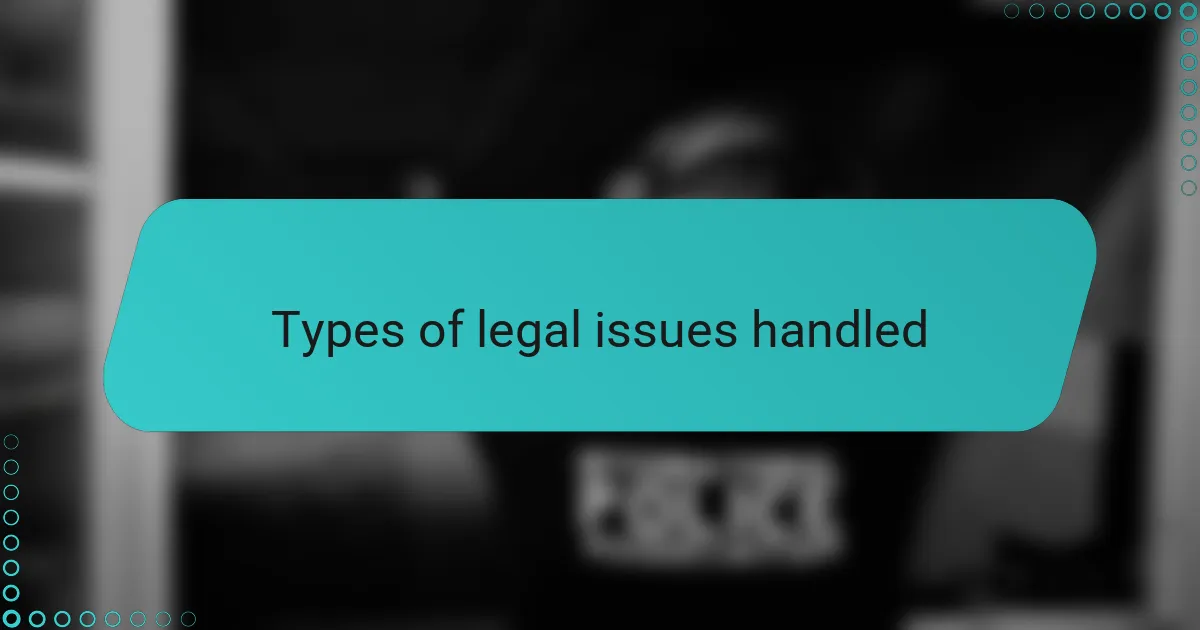
Types of legal issues handled
One of the things that stood out to me about legal aid hotlines is how diverse the legal issues they handle can be. I remember my call was related to a landlord-tenant dispute, but the hotline also assists with family law, such as custody or divorce matters, as well as issues like consumer rights and employment problems. Have you ever been surprised by the range of topics one service can cover?
At times, the complexity of the legal problem seemed overwhelming, but the hotline staff’s understanding of specific areas like immigration or public benefits made me feel like my particular case wasn’t just another number. From my experience, their expertise often covers civil cases rather than criminal ones, which is important to keep in mind, especially if you’re unsure where your issue fits. Doesn’t it help to know they know exactly what kind of help you need?
Sometimes, I was amazed at how quickly the hotline could connect me to specialists for areas like disability rights or elder law. They made it clear that no matter your situation, there’s likely a knowledgeable person on the other end ready to listen and guide you. Have you ever thought that no legal problem is too small or too complex to deserve support? From what I’ve seen, legal aid hotlines truly believe everyone deserves access to legal guidance.
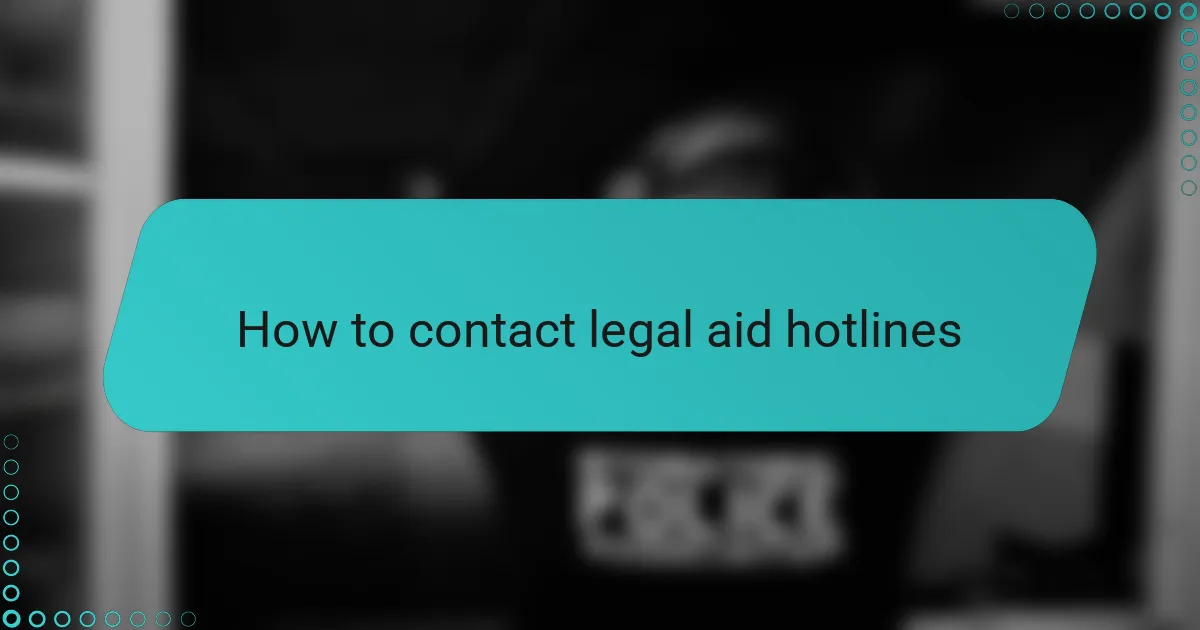
How to contact legal aid hotlines
Reaching out to a legal aid hotline usually begins with finding their phone number, which I discovered can often be located on local government websites or community center bulletins. When I first searched, I was surprised how easy it was to get in touch—sometimes just a quick online search with your location and “legal aid hotline” brings up reliable contacts right away. Have you noticed how accessible these numbers are once you know where to look?
Once I dialed the number, the call connected almost immediately, which eased my nerves, making me feel like help was close at hand. The key is to have some basic information ready—like a summary of your issue and any important documents—because this helps the intake specialist understand your situation faster. Have you ever prepared a quick outline before a call? It really helped me stay focused and made the conversation smoother.
If you’re worried about waiting on hold, from my experience, many hotlines strive to answer promptly, but sometimes the call volume means a brief wait is unavoidable. That said, I found calling during non-peak hours like mid-morning or early afternoon can shorten wait times. Have you tried calling at different times to see what works best? It’s a simple tip that made a difference for me.
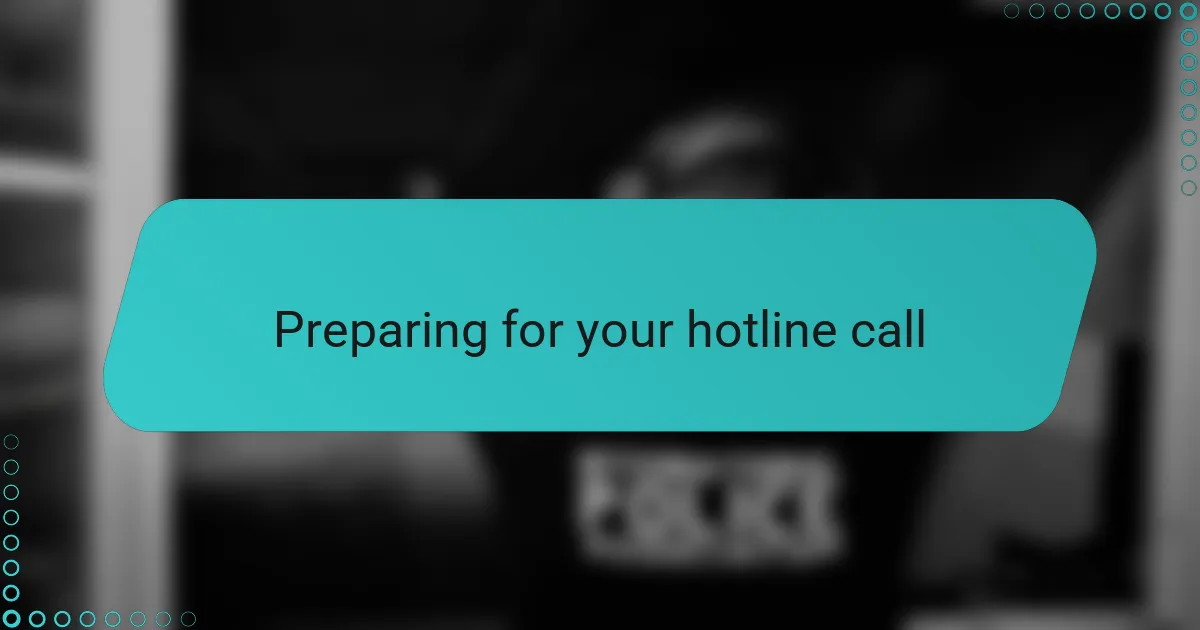
Preparing for your hotline call
Before making my call to a legal aid hotline, I found it really helped to jot down the main points of my issue. Doing this made me feel more in control and less flustered when the hotline staff asked questions. Have you ever tried organizing your thoughts this way? It can turn confusion into clarity.
Gathering relevant documents beforehand was another game-changer for me. Having papers like leases or correspondence on hand not only sped up the process but also gave me confidence that I was ready to share the details needed. Do you think having your paperwork ready could ease your anxiety too?
I also made sure to find a quiet space to take the call, which made a big difference in how well I could focus. Being somewhere private helped me open up honestly without distractions or interruptions. Where do you think you’d feel most comfortable during such an important conversation?
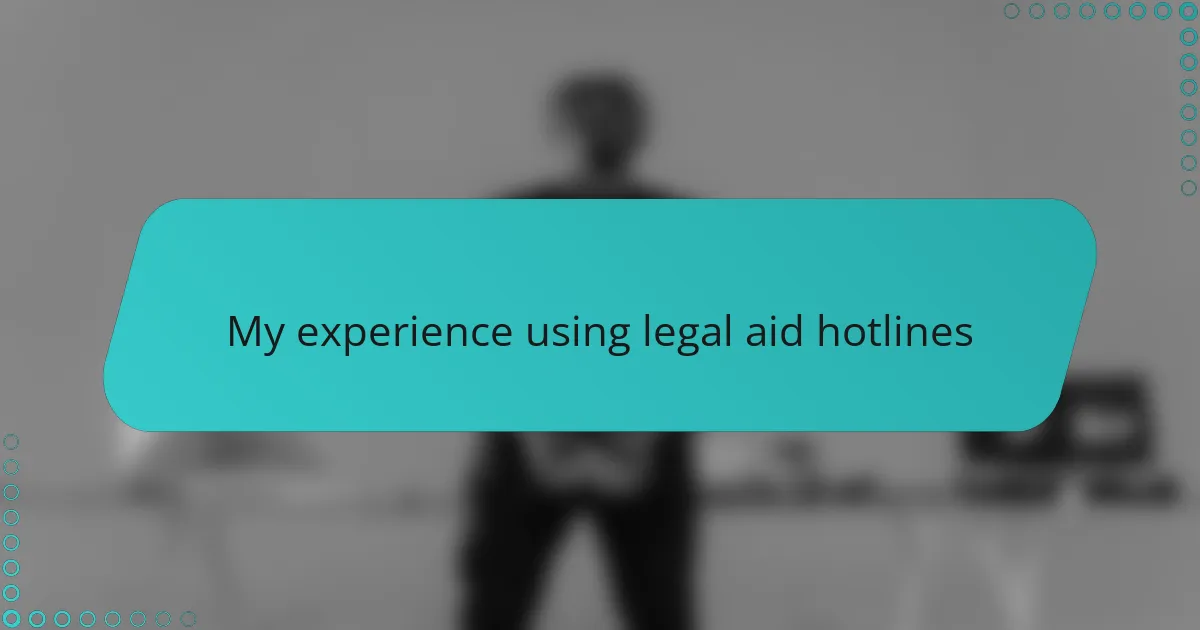
My experience using legal aid hotlines
When I first used a legal aid hotline, I was honestly surprised at how approachable the experience felt. The person on the line didn’t rush me; instead, they patiently listened, which immediately eased my anxiety. Have you ever noticed how simply feeling heard can change your entire perspective on a stressful problem?
During one particular call, I remember fumbling over the details of my case, worried I wouldn’t explain it clearly. Yet, the counselor gently guided me with questions that helped me piece together the story, making me feel supported rather than judged. Isn’t it comforting when someone helps you find your own clarity instead of just handing you advice?
What struck me most was how those short conversations turned into concrete steps forward. After hanging up, I felt like I wasn’t alone in navigating the legal maze anymore. Have you ever experienced that shift—from feeling overwhelmed to suddenly empowered—just by talking to someone who cares?
